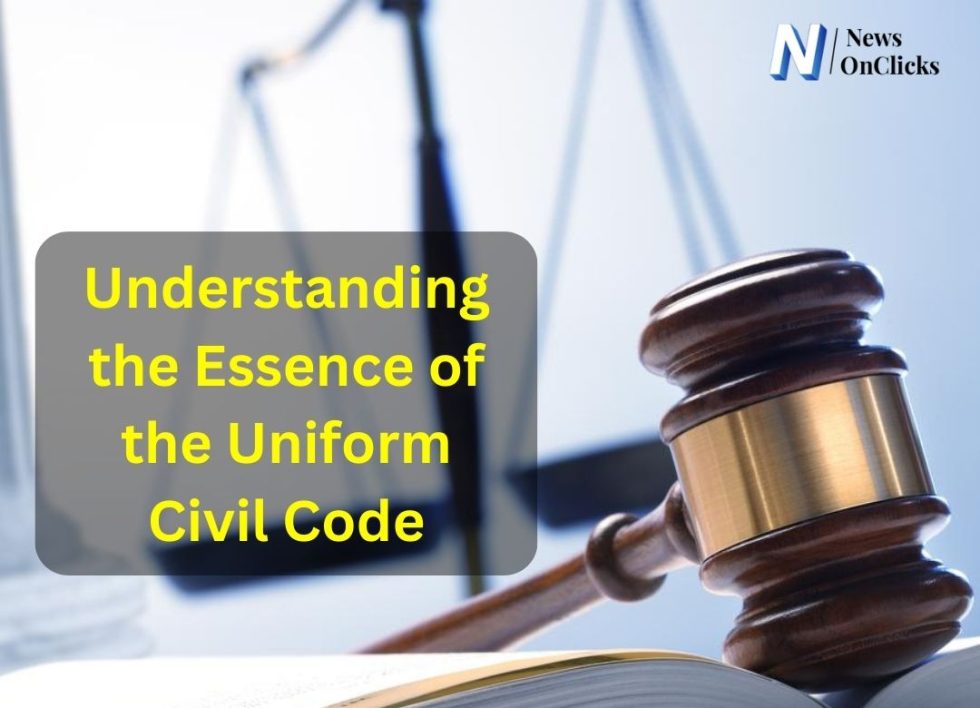
The issue of the Uniform Civil Code in India has gained renewed attention due to recent remarks made by the Prime Minister during a political rally.
The proposal for a Uniform Civil Code is being perceived by some as a direct challenge to the constitutional safeguards designed to protect the rights of religious minorities and cultural groups, including tribes.
The concept behind this agenda is based on the promotion of gender equality, which is a crucial concern in need of attention. The idea of equality is typically associated with the concept of citizenship, but there are two dimensions to the pursuit of equality. The first dimension pertains to equal treatment of all individuals before the law or equality before the law.
Beginning of the Uniform Civil Code
The Shah Bano case of 1985 ignited a significant political controversy surrounding the Uniform Civil Code in India. In this case, the Supreme Court ruled in favor of Shah Bano, a Muslim woman who sought alimony from her former spouse. The court’s decision underscored the necessity of implementing a uniform civil code.
In the early 20th century, women activists took the initiative to propose the adoption of a uniform civil code, driven by their objectives of promoting women’s rights, equality, and secularism.
The Uniform Civil Code within the Indian Constitution!
The primary goal of the Uniform Civil Code (UCC) is to establish a consistent legal framework for all individuals, regardless of their religious affiliation. Presently, personal laws based on religion govern various issues such as marriage, divorce, and succession.
Article 44 of the Directive Principles of State Policy (DPSP) in Part IV of the Constitution outlines the UCC and emphasizes that it is the responsibility of the state to work towards achieving a uniform civil code throughout the entire expanse of India for its citizens.
Despite recognizing the sensitivity and complexity of the issue, the framers of the Constitution ultimately delegated the decision to implement a Uniform Civil Code (UCC) to the government. As a result, the topic has been widely debated by various administrations over the years. However, it has remained contentious and politically sensitive, with no concrete decision being made thus far.
In what manner does the Central government plan to proceed with the Uniform Civil Code in Parliament?
There is speculation about the timing of the Centre’s introduction of the Uniform Civil Code bill in Parliament since Prime Minister Narendra Modi advocated for its implementation during a BJP event in Bhopal, Madhya Pradesh on June 27.
Prime Minister Narendra Modi stated that India required a Uniform Civil Code (UCC) as the existence of “separate laws for separate communities” constituted a dual system that could not effectively run the country.
The Indian Prime Minister’s remarks on the Uniform Civil Code (UCC) align with a highly active political schedule in the country, including upcoming Assembly polls in five states and the impending 2024 General Elections. Given that the UCC is a contentious issue that has triggered concerns among multiple minority communities, the timing of his statement is noteworthy. Furthermore, the fact that the 22nd Law Commission of India requested fresh inputs from diverse stakeholders, including religious and public entities, on the matter of the UCC, should also be acknowledged. It is pertinent to note that the Prime Minister’s statement was made less than two weeks after this development.
What are the obstacles encountered in the implementation of the (UCC)?
- Varied personal laws and customary practices:
India’s diverse religions, cultures, and traditions have led to the existence of various communities with unique personal laws and customs governing civil matters. However, the significant differences in these laws and practices across regions, sects, and groups make it challenging to establish uniformity. Additionally, the lack of documentation or codification in some personal laws, along with ambiguous or contradictory sources, further complicates the matter.
- Insufficient political determination and lack of consensus:
The absence of political determination and agreement among the government, legislature, judiciary, and civil society to introduce and enforce UCC is a significant obstacle. Additionally, there are concerns that the implementation of UCC may incite communal tensions and conflicts within society.
- Challenges arising from opposition of Religious and Minority Groups:
Minority and religious groups perceive the UCC as an attack on their cultural autonomy and religious freedom. They are wary that the UCC may impose a uniform law that disregards their diversity and identity, and that it could potentially violate their constitutional rights under Article 25, which guarantees them the right to practice, propagate, and profess religion freely.
Conclusion
The state’s attempts to establish a Uniform Civil Code have been met with slow progress due to the challenge of reaching a common consensus. To achieve a common ground, it is necessary to increase awareness through discussions and deliberations among members of different communities. Additionally, there is ample scope for the enactment of more laws that apply to all individuals, irrespective of their religion and personal laws. To recommend such reforms in upcoming laws, an evaluation survey among various communities is needed.









